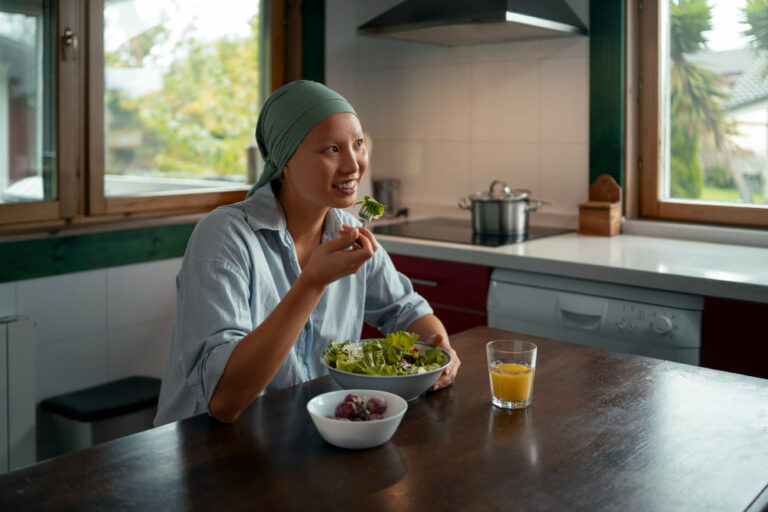
By Dr.Ravindra Patil
During any illness, a proper diet is indeed necessary. What foods and beverages are considered ‘bad’ even during good health should obviously be avoided. This blog aims to search out for the best diet for a patient undergoing brain tumour treatment.
Are there nutritional guidelines for brain tumour patients?
That is the first question that comes to mind. Brain tumour is a serious condition and requires treatment. Is there a requirement of special nutrition during brain tumour treatment?
There isn’t a specific “brain tumour diet” that universally applies to all individuals with brain tumours. However, a balanced and nutritious diet is generally recommended to support overall health and well-being, which can be particularly important for individuals undergoing treatment for brain tumours.
Brain tumour will always be treated by either surgery, chemotherapy or radiation therapy. Taking a diet which will obviate the side effects of brain tumour must also be planned. Let us first see the various side effects of brain tumour therapies and how brain tumour diet and nutrition will help.
These side effects will be similar to the side effects of any surgery. a general high protein nutritious diet full of natural vitamins will help the brain surgery wound, which may be a craniotomy, heal fast.
Some of the side effects of brain tumour chemotherapy, but not all, can be reduced with proper nutrition.
Radiation therapy, like chemotherapy, is a common treatment for brain tumours. It uses high-energy rays to target and destroy cancer cells while minimizing damage to healthy tissue. While radiation therapy can be effective in treating brain tumours, it can also lead to various side effects. Proper nutrition will help relieve the radiation therapy symptoms somewhat.
There are many more side effects of radiation therapy and sadly all of them cannot be managed by changes in nutrition.
So what should be the diet of a brain tumour patient? The following text gives a general guideline.
A diet chart for brain tumour patients is a list of foods that are usually healthy for people with brain tumours. The patients cannot eat foods that have been processed or contain artificial colours or flavours because these chemicals cause the tumour to grow faster. The following items are beneficial.
Broccoli has been found to have anti-cancer properties and it also helps in reducing the risk of developing cancer. It contains vitamin C, vitamin B6, folate, calcium, magnesium, phosphorus and potassium.
Garlic is a commonly eaten food that has been found to have anti-cancerous properties.
Turmeric is a spice that has been used in Indian cuisine for centuries. It has medicinal properties.
Ginger is a food that is in use for centuries to help with the symptoms of nausea and vomiting. Now, scientists have found that ginger can also help with brain tumours.
Chicken broths are an excellent choice for those who need to eat a high-calorie diet. They contain a lot of protein, nutrients and minerals that help in fighting cancer.
Nuts are a food that is rich in antioxidants and omega-3 fats. They are also a good source of protein, fibre, and healthy fats.
Eggs are a great food to include in a diet of brain tumour patients. They have nutrients that help with brain health and they can be made into many different dishes.
To be included in the nutritional support for brain tumour treatment are:
Samarth Neuro and Superspeciality Hospital has 100+ beds & specializes in emergency surgery for neurological issues/disorders & diagnostics.
Samarth Neuro and Superspeciality Hospital